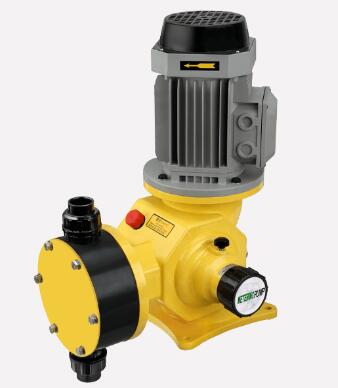Post time: Mar-14-2024
What Is The Purpose of a Metering Pump?
Metering pumps are vital components in various industries where precise and controlled fluid dosing is essential. From water treatment and chemical processing to food and beverage production, these pumps play a crucial role in delivering accurate volumes of liquids with consistency and reliability. In this article, we explore the purpose and significance of metering pumps in fluid control applications.
Accurate Fluid Metering
One of the primary functions of a metering pump is to accurately dispense precise volumes of fluid over a specified period. Unlike standard pumps that may rely on external factors like pressure variations, metering pumps are designed to provide highly accurate dosing regardless of changes in system conditions. This precision is crucial in applications where the exact measurement of fluids is critical to achieving desired outcomes, such as chemical reactions, medication administration, or product formulation.
Continuous and Consistent Flow
Metering pumps excel in delivering a continuous and consistent flow of fluid, even under varying operating conditions. By employing sophisticated mechanisms such as diaphragms, pistons, or gears, these pumps can maintain a steady flow rate with minimal pulsation or variation. This consistent flow is particularly important in processes where fluctuations can compromise product quality or system performance. Whether it's maintaining pH levels in water treatment or adding additives in industrial processes, metering pumps ensure reliable and uniform fluid delivery.
Precise Control of Process Parameters
In many industrial applications, maintaining precise control over process parameters is essential for achieving desired outcomes. Metering pumps provide operators with the ability to finely adjust flow rates and dosing volumes to meet specific requirements. This level of control enables optimization of processes such as chemical dosing, pH regulation, and injection molding, where even slight deviations can have significant consequences. With metering pumps, operators can fine-tune dosing parameters to ensure optimal performance and efficiency.
Compatibility with a Wide Range of Fluids
Another key advantage of metering pumps is their compatibility with a diverse range of fluids, including corrosive chemicals, viscous solutions, and abrasive slurries. Manufacturers offer a variety of pump materials, seal options, and diaphragm materials to suit different fluid properties and application requirements. This versatility allows metering pumps to be deployed in challenging environments where standard pumps may be unsuitable. Whether it's handling aggressive acids in chemical processing or delivering precise doses of pharmaceuticals, metering pumps offer reliable performance across various fluid types.
Conclusion
In conclusion, the purpose of a metering pump is to provide precise, continuous, and consistent dosing of fluids in a wide range of industrial applications. By offering accurate fluid metering, continuous and consistent flow, precise control of process parameters, and compatibility with diverse fluids, metering pumps play a crucial role in ensuring the efficiency, reliability, and quality of fluid control processes.
If you require high-quality metering pumps or expert guidance on fluid control solutions, don't hesitate to contact us. As a trusted supplier of industrial pumps and equipment, we're committed to providing tailored solutions to meet your specific needs.


















